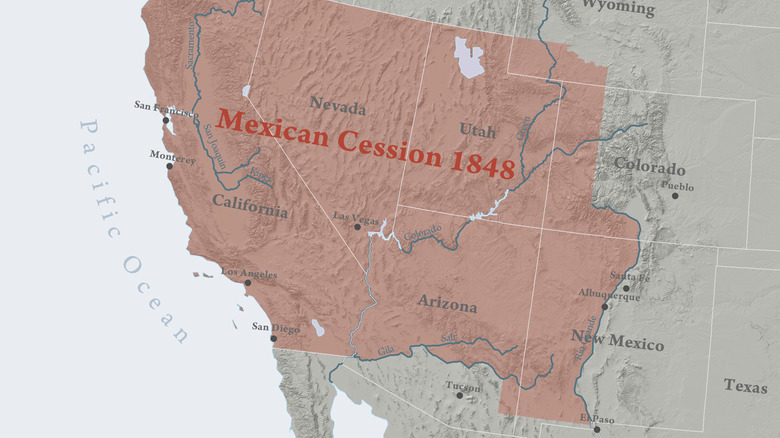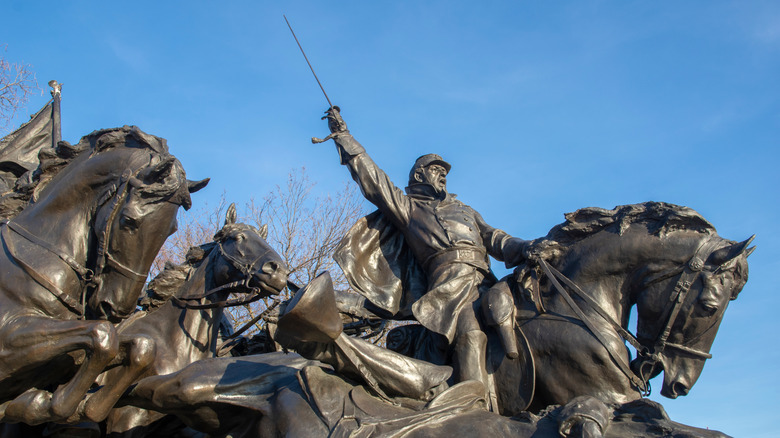Here's What Happened After The Mexican-American War Ended
The Treaty of Guadalupe Hidalgo brought the Mexican-American War to an end on February 2, 1848. As History.com notes, Mexico City had fallen to the American forces in September of 1847, prompting the surrender of the Mexican army and the initiation of peace talks between the two countries. The treaty marked the official end to the conflict that had raged between the neighboring nations for the better part of two years. It also enacted terms that would leave both countries forever changed.
Not only did Mexico abandon any claims it had previously held to the contested state of Texas — ultimately agreeing to the Rio Grande as its southern boundary — the country also lost another 525,000 square miles of territory west of Texas. The territory that now makes up the modern states of New Mexico, Colorado, Wyoming, Utah, Arizona, Nevada, and California — either in part or in their entirety — came from this cession. The United States' part of the deal was a $15 million payment and the agreement to take on the debts the Mexican government had to American citizens. But, in addition to greatly expanding the United States' boundaries, the end of the Mexican-American War had other consequences that altered the course of its history, the effects of which are still felt in American culture and politics today.
The Mexican-American War set the stage for the US Civil War
According to the U.S. Army, military leader and future President Ulysses S. Grant called the war "one of the most unjust ever waged by a stronger against a weaker nation." He and others who opposed the war, like Transcendentalist writer Henry David Thoreau, knew that the Mexican-American War happened because of the country's rabid lust for expansion of territory and power known as Manifest Destiny. However, not everyone had the same negative opinion of the war. As they are wont to do, Americans were divided in their support or disapprobation of the conflict, and once it was finally over, they had even more to argue about.
Now there was the question of slavery. Would the country expand the disgraceful institution to the newly acquired territories or would they be free? And as the American Battlefield Trust notes, the debate over what to do dissolved party lines, rang the death knell for the Whig Party, and led to the creation of the Republican Party, which began as a party opposed to exploitative practices like slavery. But the political tensions were not settled by the formation of the new party. They continued to seethe until the country exploded into all-out civil war, and the American people are still divided over that conflict to this day. There are those who believe in the Lost Cause of the Confederacy— a pseudo-history propagating a false narrative of southern victory in the Civil War and good intentions for hateful practices like slavery — and then there are those who believe the truth.

